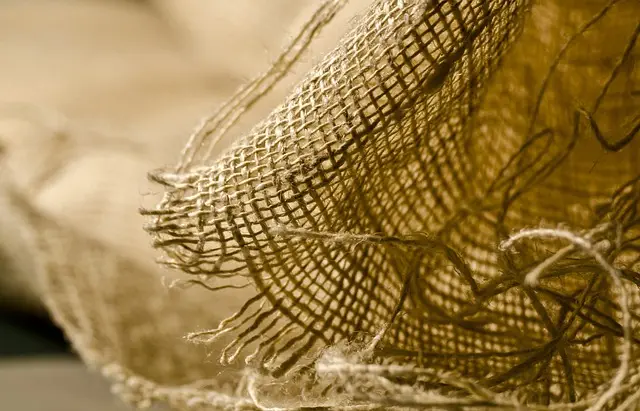Muscle soreness, known as Delayed Onset Muscle Soreness (DOMS), often results from intense physical exertion and is characterized by muscle pain and tenderness due to microtrauma and inflammation. Kratom, from the Mitragyna speciosa plant, has been explored for its potential to alleviate this soreness through its alkaloids like mitragynine and 7-hydroxymitragynine, which may act on opioid receptors for pain relief. Additionally, there is anecdotal evidence suggesting kratom might enhance well-being during recovery and could have a positive impact on hair health, with some users reporting changes in hair growth or density. However, the use of kratom should be approached with caution due to its regulatory status and the need for further research to understand its full range of effects and safety profile, particularly concerning its potential to cause hair loss when used excessively over time. Users considering kratom for muscle soreness or hair health benefits are advised to start with a low dose and consult healthcare professionals for informed decision-making, given the complexity of kratom's effects and its risk of dependence.
Muscle soreness can be a persistent challenge for individuals, particularly those who engage in rigorous exercise or physical labor. Seeking effective relief strategies is often a priority to maintain an active lifestyle. This article explores the potential of kratom supplements as a remedy for muscle soreness, while also addressing the intersection of kratom use and hair loss—a topic of growing interest among users. By delving into scientific research and user experiences, we aim to clarify how kratom might alleviate muscle discomfort and whether its use could have implications for hair health. Join us as we navigate the multifaceted effects of kratom on bodily functions, providing a comprehensive overview of its application for muscle soreness relief and shedding light on the connection with hair loss.
- Understanding Muscle Soreness and the Role of Kratom Supplements
- Exploring the Connection Between Kratom and Hair Loss
- Effective Relief Strategies for Muscle Soreness with Kratom Use
Understanding Muscle Soreness and the Role of Kratom Supplements

Muscle soreness, often referred to as delayed onset muscle soreness (DOMS), can occur after intense physical activity or exercise. This condition is characterized by pain and tenderness in the muscles, typically felt a day or two post-workout. The mechanism behind muscle soreness involves microtrauma to muscle fibers, which triggers an inflammatory response that can lead to the characteristic pain and swelling. Understanding this physiological reaction is crucial for effective recovery and relief. Kratom supplements have emerged as a potential aid in managing muscle soreness. Mitragyna speciosa, commonly known as kratom, contains alkaloids such as mitragynine and 7-hydroxymitragynine, which are believed to interact with the opioid receptors in the brain, potentially offering analgesic effects. These properties may help alleviate pain associated with muscle soreness, allowing individuals to maintain their physical activity regimen without significant discomfort. Additionally, some anecdotal evidence suggests that kratom might also have a role in promoting overall well-being, which can be beneficial during recovery periods. While the research on kratom is still emerging, its potential benefits extend beyond muscle soreness relief; preliminary studies and user accounts hint at various other health advantages, including the possible impact on hair health. Some users report that kratom may contribute to reducing stress and improving circulation, which in turn could potentially support hair growth and prevent hair loss, although more conclusive evidence is needed to substantiate this claim. As with any supplement, it is important to consult healthcare professionals before incorporating kratom into one’s health regimen, especially considering the regulatory status of kratom varies by region and ongoing research into its effects and safety.
Exploring the Connection Between Kratom and Hair Loss

Kratom, a plant from Southeast Asia with leaves that contain psychotropic compounds, has been the subject of various studies and discussions regarding its potential effects on human health. One area of interest is its possible connection to hair loss, or alopecia. The active components in kratom, mitragynine and 7-hydroxymitragynine, have been observed to interact with the body’s opioid receptors, which can affect hormonal balance and metabolic processes. While more research is needed to fully understand the relationship between kratom use and hair health, some preliminary findings suggest that certain individuals may experience changes in their hair growth patterns after consuming kratom. These changes could manifest as either increased or decreased hair density, with the latter potentially leading to hair loss if the body’s hormonal equilibrium is disrupted. It is important for those considering kratom as a supplement to be aware of this potential side effect and to consult with healthcare professionals before making any decisions. Additionally, individuals already experiencing hair loss may wish to explore whether their kratom use correlates with their condition, as understanding the full scope of kratom’s effects is crucial for informed decision-making regarding its consumption. As the scientific community continues to investigate the mechanisms behind kratom’s influence on hair health, it is essential for users to approach this supplement with caution and to consider all available data to mitigate any negative impacts on their well-being.
Effective Relief Strategies for Muscle Soreness with Kratom Use

Muscle soreness, a common occurrence post-exercise or injury, can be alleviated through various methods, with kratom supplements emerging as a potential natural remedy. Kratom, derived from the leaves of Mitragyna speciosa, has been traditionally used in Southeast Asia for its medicinal properties. For individuals experiencing muscle soreness, kratom may offer relief due to its analgesic effects. Strains such as Maeng Da and Bali are often favored for their pain-relieving characteristics. The alkaloids present in kratom, like 7-hydroxymitragynine and mitragynine, interact with the opioid receptors in the brain, which can help manage pain levels effectively.
While exploring the benefits of kratom for muscle soreness, it’s also worth considering its potential impact on hair health. Some studies suggest that certain compounds in kratom might promote hair growth and improve overall hair health by increasing blood circulation and reducing inflammation, which is beneficial for the scalp. However, it is crucial to approach kratom use with caution due to its potent effects and potential side effects. Users should start with a low dose to gauge their body’s response and consult with a healthcare provider before integrating kratom into their regimen, especially if they have underlying health conditions or are taking other medications. Additionally, long-term use of kratom should be carefully monitored due to the risk of dependence and adverse effects on hair health, as some anecdotal reports have linked chronic kratom use to hair loss. Therefore, while kratom may provide relief for muscle soreness, it is important to use it responsibly and in moderation, considering its broader health implications.
Muscle soreness can be a significant impediment to an active lifestyle, but understanding its mechanisms and exploring complementary approaches like kratom supplements can provide meaningful relief. While the relationship between kratom and hair loss requires further scientific scrutiny, it’s clear that for those experiencing muscle soreness, kratom may offer potential benefits. The strategies outlined in this article for incorporating kratom into your regimen can help alleviate discomfort, allowing individuals to maintain their physical activities and well-being. It’s important for users to approach kratom with caution, considering its potency and the need for more research on its long-term effects. For those interested in both muscle soreness relief and addressing hair loss concerns, a holistic health plan that includes proper nutrition, regular exercise, and professional medical advice is recommended to ensure overall health and address any underlying issues.






